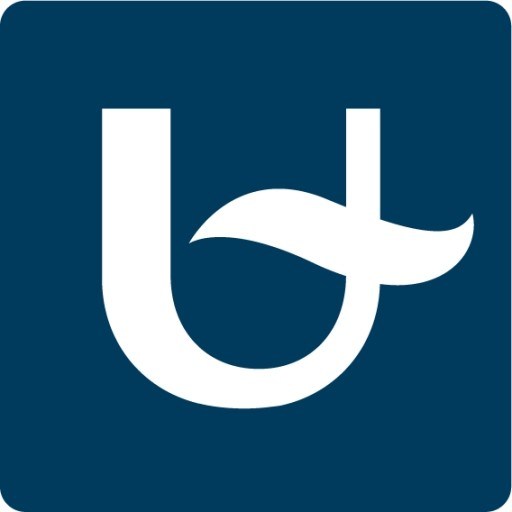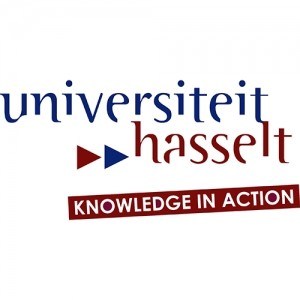Photos of university / #uantwerpen
The Bachelor's program in Biodiversity, Conservation and Restoration at the University of Antwerp provides students with comprehensive knowledge and practical skills to address the global challenges related to biodiversity loss and ecosystem degradation. This innovative program combines a robust foundation in biology, ecology, and environmental sciences with hands-on experiences in conservation practices, habitat restoration, and sustainable management of natural resources. Throughout the course, students explore various facets of biodiversity, including species diversity, genetic variation, and ecosystem complexity, while also examining human impacts and strategies for mitigating environmental threats.
The curriculum is designed to foster a multidisciplinary understanding, integrating theories from ecology, evolutionary biology, conservation policy, and environmental ethics. Students learn to critically analyze scientific data, develop conservation plans, and implement restoration projects effectively. The program emphasizes practical training through fieldwork, laboratory exercises, and internships with environmental organizations, government agencies, and research institutes. This ensures graduates are well-equipped to work in diverse roles related to biodiversity monitoring, habitat management, and environmental policy formulation.
Moreover, the program encourages international perspectives and collaboration, preparing students to operate in global conservation efforts. Language skills, communication, and project management are also key components of the curriculum. Graduates of this program will be capable of contributing to the preservation of biodiversity and sustainable environmental management, whether through scientific research, policy development, or on-the-ground conservation activities. With a strong emphasis on evidence-based approaches and practical experience, the Bachelor's in Biodiversity, Conservation and Restoration aims to empower students to become proactive agents of change in safeguarding our planet's natural heritage for future generations.
Model Path part 1
Fundamentals and skills
- Plant Ecology
- Biostatistics
- Geografic information systems (GIS)
- Ecology of populations and communities
- Landscape ecology
Conservation and restoration in practice
- Conservation biogeography
- Habitat conservation
- Conservation and society
- Conservation genetics
List of optional courses
- Applied and conservation behaviour
- Aquatic ecology
- Biogeomorphology
- Bioinformatics
- Ecological modelling
- Energy from biomass
- Herpetology
- Microbial ecology
- Ornithology
- Remote sensing
Model Path part 2
Fundamentals and skills
- Ecohydrology field course
Conservation and restoration in practice
- Restoration ecology
- Species conservation and management
List of optional courses
- Animal Physiology
- Applied and conservation behaviour
- Aquatic ecology
- Behavioral ecology
- Biogeomorphology
- Bioinformatics
- Coastal and estuarine management
- Debating Development
- Ecological modelling
- Energy from biomass
- Entomology
- Evolutionary & Ecological Physiology
- Herpetology
- Infectious disease ecology
- Mammalogy
- Microbial ecology
- Ornithology
- Plant Physiology and Functional Morphology
- Primatology
- Remote sensing
Requirements
- As the programme builds on your knowledge of ecology and environmental science at the Bachelor level, applicants should hold an academic Bachelor’s degree in Biology or equivalent. All Bachelor degrees in the field of Science, Applied Sciences or Life Sciences that have a strong focus on biology will be considered (e.g. Biology, Bio-engineering, Environmental science). The equivalence of Bachelor’s degrees will be decided by the Board of Admission. In some cases the successful completion of a preparatory programme (15 to 90 ECTS, only available in Dutch) may be required. Students in the last year of their Bachelor’s programme are encouraged to apply, but their admission will be conditional
- Applicants are also required to submit a GMAT or GRE test score. Both the verbal and quantitative score will be taken into consideration.
- TOEFL (Test of English as a Foreign Language): paper-based TOEFL level of minimum 550, a computer-based TOEFL level of minimum 213 or an internet-based TOEFL level of minimum 80. You can find more information about TOEFL at www.toefl.org
- IELTS (International English Language Testing System): a minimum score of at least 6.5, and on each part minimum 6.0. You can find more information about IELTS at www.ielts.org;
- A copy of your valid passport or identity card/a curriculum vitae
- A motivation letter
- A legalised copy of your degree certificate (please read more information on legalisation)
- Applicants that are enrolled in the final year should submit an original and signed letter from their college or university confirming that they are expected to finalise the program at the end of the current academic year
- A copy of your academic transcripts, provided with a stamp of the university
Scholarships
- VLIR-UOS: scholarships for students from developing countries: Scholarships are available for students from 54 scholarship countries in Africa, Asia and Latin-America to follow a training or master programme at the University of Antwerp.
- ASEM-DUO: Scholarships are available for students from China, India, South-Korea and Vietnam.
- Transition Fellowship Programme: Scholarships are available for students from 4 countries in transition (Brazil, Morocco, South Africa and Turkey).
- Mastermind: Scholarships are available for international students who want to take up a master degree programme.
- Global Study Awards: An individual global study award with a maximum value of £10000
The Master of Science in Biodiversity, Conservation and Restoration at the University of Antwerp is a comprehensive program designed to equip students with advanced knowledge and practical skills necessary for the sustainable management and conservation of biodiversity. This interdisciplinary program combines biological sciences, ecology, conservation strategies, and restoration techniques to address pressing environmental challenges faced by ecosystems worldwide. Students will explore diverse topics such as ecosystem functioning, species conservation, habitat restoration, and environmental policies, preparing them for careers in research, conservation organizations, environmental consultancy, or policy-making. The curriculum emphasizes both theoretical understanding and practical application, including fieldwork, laboratory analyses, and project management. Students will have opportunities to engage in real-world projects through collaborations with environmental agencies and NGOs, gaining valuable experience. The program also promotes critical thinking about current environmental issues, encouraging students to develop innovative solutions for biodiversity loss and habitat degradation. By the end of the program, graduates will be equipped to make informed decisions and develop strategies for the preservation and restoration of natural ecosystems. The program is suitable for applicants with a background in biological sciences, environmental sciences, or related fields who are passionate about making a positive impact on the environment. With a strong emphasis on multidisciplinary approaches and international perspectives, graduates will be prepared for diverse professional roles in the global context of biodiversity conservation.



